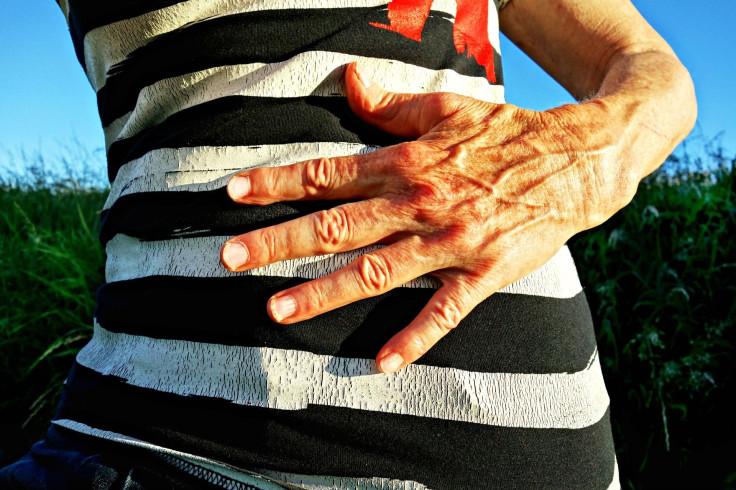Am I Full Yet? How The Brain And Stomach Work To Balance Appetite For Healthy Eating


Digestion: How does our brain let our body know we're full?
This question originally appeared on Quora. Answer by Suzanne Sadedin, PhD in Evolutionary Biology.
This is a surprisingly complex question. Your digestive system mostly informs the brain about being full, rather than the other way around, but both are actively involved. In fact, your gut is surrounded by an enormous neural network devoted to analyzing what's going on in there and communicating with your brain. This network is so big (400 to 600 million neurons) that researchers refer to it as the gut brain .
Possibly the main reason we have a gut brain is to regulate the vast internal ecosystem that is our gut microbiota . These constitute around half the cells in our bodies, and have vastly more genes than we do. Many of these microbes are helpful symbionts, but they might not want exactly what we want. They can secrete chemical signals to influence our mood and appetite via the gut brain. Should we trust those signals? Which microbes should we help and which ones should we fight? Figuring this sort of thing out is the gut brain's job. We still don't understand all the mechanisms involved here, in fact we know virtually nothing about most of the microbes living in our gut.
We know more about the rest of the system. Signals get around our bodies in two ways: via the nerves and via the blood . Both systems are involved in letting your brain know when you're full.
Within your brain, a region called the hypothalamus controls your appetite. It takes inputs from several different systems:
- the vagus nerve which connects the gut brain and other organs to the brain
- blood levels of hormones secreted by the gut
- changes in blood concentration of glucose, fatty acids and amino acids
- the limbic system (which regulates your emotions)
- the cerebral cortex (the main part of your brain)
So appetite is tied to everything you experience and think as well as the state of your gut. Your hypothalamus integrates all these diverse incoming signals to decide how full you should feel. In response, it secretes serotonin, and stimulates your thyroid, pituitary and adrenal glands, which in turn secrete a host of other hormones to regulate your mood and behavior.
How Does This Work?
Being full is primarily not being hungry. When your stomach is empty, your gut secretes ghrelin , a hormone that acts on your hypothalamus, vagus nerve and gut to make you hungry. Ghrelin increases dopamine activity, which makes you actively seek rewards. When you smell food, you secrete more dopamine, motivating you even more.
As you eat and your gut stretches, your gut lining stops secreting ghrelin and starts secreting serotonin. Serotonin makes you feel good and suppresses dopamine production, so you stop feeling motivated to eat. (Serotonin isn't always fun though: if these cells detect toxins in your food, they'll secrete extra serotonin - so much that you get diarrhea and vomiting.)
Eating carbohydrates triggers insulin release, which makes your fat cells release another hormone, called leptin , which inhibits hunger. When you fast, or don't sleep, or exercise a lot, your leptin levels drop, making you hungry. At night, your leptin levels rise, reducing hunger. Obese people become less sensitive to leptin, so they stay hungry more.
Dopamine and serotonin are both very powerful neurotransmitters with complex functions that affect many different systems in your body. We don't understand everything they do yet, but we do know that about half the dopamine and 90% of the serotonin in your body come from your gut.
How does serotonin suppress dopamine? Serotonin binds with 5-TH2C receptors on cells that produce dopamine. If you use a drug to block these receptors so the serotonin can't bind to them, people go on feeling hungry no matter how much they eat. This is also why people who have few 5-TH2C receptors gain weight easily.
Your serotonin production also responds to what you eat. An amino acid called tryptophan is used to make serotonin. Insulin makes amino acids that compete with tryptophan get removed from the bloodstream. So that means extra tryptophan makes it to the brain, enabling your brain to produce more serotonin. Eating proteins that are relatively high in tryptophan (versus other amino acids) has the same effect.
Bonus fact for those who made it this far: cholesterol is vital for serotonin receptor function. Men who take statins to lower their cholesterol can lose so much serotonin function that they become increasingly depressed, violent and suicidal. The effect is so strong that some studies suggest the overall death rate is higher with statins than without.
More from Quora:
Published by Medicaldaily.com



























